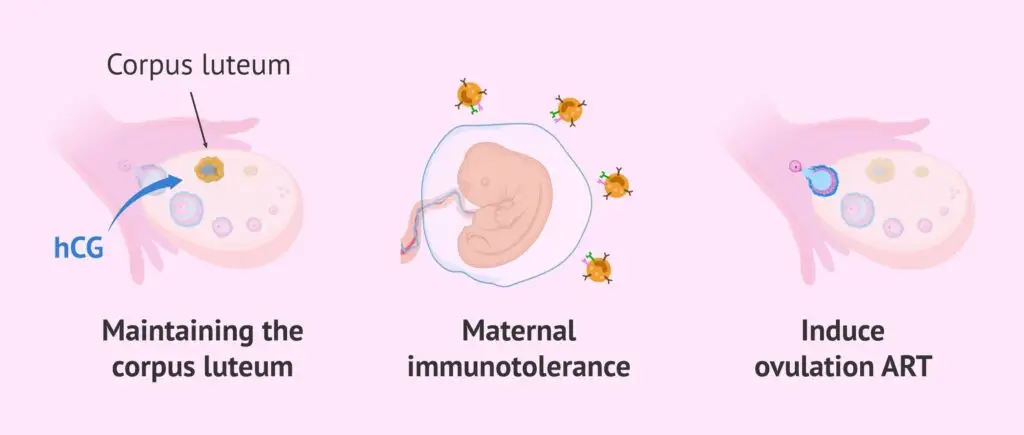Human Chorionic Gonadotropin (hCG) is a hormone produced during pregnancy that plays a critical role in monitoring pregnancy status and can also provide insights into certain aspects of abortion and miscarriage management. Below is a detailed explanation of hCG, its significance, and its relationship to abortion:
What is hCG?
HCG is a hormone secreted by the cells that form the placenta shortly after a fertilized egg implants in the uterus.
Function in Pregnancy:
- Supports the corpus luteum, which produces progesterone to maintain the uterine lining.
- Stimulates the production of other hormones vital for pregnancy.
Detection:
hCG levels are detectable in blood and urine, forming the basis for most pregnancy tests.
hCG Levels in Pregnancy
Normal hCG Trends:
- Levels double approximately every 48–72 hours in early pregnancy.
- Peak around 8–11 weeks of pregnancy and gradually decline but remain detectable throughout pregnancy.
Abnormal Levels:
- Low hCG: May indicate miscarriage, ectopic pregnancy, or a non-viable pregnancy.
- High hCG: Could suggest multiples (twins/triplets), molar pregnancy, or less commonly, certain types of tumors.

hCG in Relation to Abortion
Before an Abortion:
- Confirming Pregnancy:
hCG tests are often performed to confirm the presence and viability of a pregnancy before an abortion procedure. - Determining Gestational Age:
Ultrasound and hCG levels can help determine the stage of pregnancy, which is important for choosing the appropriate abortion method (medical or surgical).
During a Medical Abortion:
Medications and Hormones:
- Medical abortions typically involve mifepristone (to block progesterone) and misoprostol (to induce uterine contractions).
- These medications do not directly affect hCG but lead to the termination of pregnancy, which subsequently causes hCG levels to decline.
After an Abortion:
- Monitoring hCG Decline:
hCG levels decrease after an abortion but may remain detectable for 2–4 weeks. Tracking hCG levels ensures the pregnancy has been successfully terminated and rules out complications like incomplete abortion. - Incomplete Abortion:
Persistently high hCG levels post-abortion may indicate retained pregnancy tissue or an ongoing pregnancy, requiring further medical intervention.
hCG and Pregnancy Tests Post-Abortion:
- hCG may linger in the body for weeks, leading to false-positive pregnancy tests. Healthcare providers recommend waiting 2–3 weeks before retesting.
hCG in Miscarriage Management
Diagnosing Miscarriage:
Declining hCG levels in early pregnancy may signal a miscarriage or non-viable pregnancy.
Guiding Treatment:
- In spontaneous miscarriages, healthcare providers monitor hCG to ensure all pregnancy tissue has been expelled.
- In missed or incomplete miscarriages, hCG tracking helps determine whether additional treatment (e.g., medication or surgical intervention) is needed.
Complications and hCG Abnormalities
Ectopic Pregnancy:
- hCG levels may rise more slowly than expected.
- Early diagnosis and intervention are critical for this life-threatening condition.
Molar Pregnancy:
- Abnormally high hCG levels can indicate gestational trophoblastic disease (e.g., molar pregnancy), requiring specialized care.
Takeaway Points
- hCG is a key marker for confirming pregnancy, assessing its progress, and monitoring outcomes after abortion or miscarriage.
- Accurate measurement of hCG levels ensures effective management of pregnancy-related conditions, reducing risks and complications.
- For abortion services or miscarriage care, women should always consult trained healthcare providers who can monitor hCG levels and provide comprehensive care.




